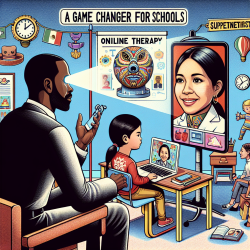Understanding the early signs of autism and their impact on language development is crucial for practitioners working with young children. A recent longitudinal study titled Are early social communication skills a harbinger for language development in infants later diagnosed autistic?—A longitudinal study using a standardized social communication assessment sheds light on the importance of early social communication skills in predicting language outcomes for infants at risk of autism.
The Importance of Early Social Communication Skills
The study highlights that infants who demonstrate better social communication skills at 12 months tend to have improved language abilities by 24 months. However, this developmental coupling is often delayed in infants who meet the criteria for autism until they reach 24 months. This finding underscores the need for early interventions that focus on enhancing social communication skills before a formal autism diagnosis is made.
Preemptive Interventions: A Proactive Approach
Preemptive interventions, which are implemented before an official diagnosis, have shown promise in improving social communication outcomes. These interventions often involve parents and caregivers, teaching them strategies to foster joint attention, symbolic play, and vocalizations in infants. Research indicates that when parents engage effectively in these interventions, children show better social communication and potentially improved language outcomes.
Practical Steps for Practitioners
- Early Assessment: Utilize standardized assessments to identify social communication challenges as early as 12 months.
- Parental Involvement: Encourage parents to participate actively in intervention programs to enhance their child's social engagement and communication skills.
- Focus on Key Skills: Target interventions on joint attention, gesture use, and intentional communication to support downstream language development.
- Monitor Progress: Regularly assess the child's progress and adjust intervention strategies accordingly to ensure optimal outcomes.
The Path Forward: Encouraging Further Research
This study opens avenues for further research into the specific elements of social communication that most significantly impact language development. By exploring these associations more deeply, practitioners can refine intervention strategies to better support children at risk of autism. Additionally, expanding research to include diverse populations will help ensure that findings are applicable across different demographics.
To read the original research paper, please follow this link: Are early social communication skills a harbinger for language development in infants later diagnosed autistic?—A longitudinal study using a standardized social communication assessment










